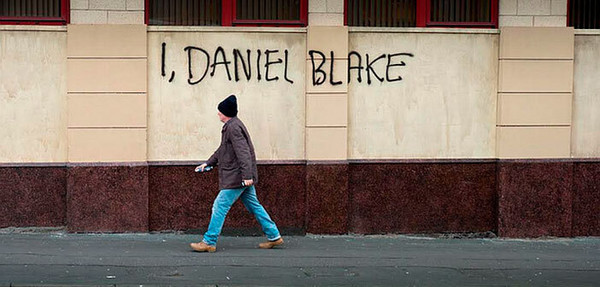
“I, Daniel Blake” is a 2016 film directed by Ken Loach that criticized the inhumane bureaucratic system. The main character Daniel, who spent his entire life as a carpenter, was diagnosed with heart disease and was no longer allowed to work. He tried to apply for sick benefits at the district office, but was frequently frustrated by the complicated procedures. Under the bureaucratic system, the main character in the movie must continue to prove his pain and poverty. This shows that an institutional device designed to promote human welfare, paradoxically harms human self-esteem and drives him to his death. With the establishment of Neo-liberalism, the welfare system has sought to make the system more efficient rather than empathize with the people they are said to help. In the process, it gradually focused on qualifications for poverty and the point was concluded to "how to reduce people’s dependence on welfare.” The result is strict and complex eligibility criteria and tight monitoring of subsidies. We need to have fundamental concerns about the direction of the welfare system.
Poverty in modern Korean society does not appear only in the typical form of the needy, such as “extremely poor” or “incurable patients lying in shabby single rooms.” According to Statistics Korea, Korea's relative poverty rate stood at 16.7 percent in 2018, the third highest among the 35 OECD countries. However, it is not easy to get the so-called "poverty certificate" issued by the state. The UN calls the strengthening of social welfare requirements and investigations necessary for the people living in poverty ‘a measure that penalizes poverty.’ In such a punitive welfare system, there are also many Daniels in Korea. Lee Ji-hoon, a blind man who participated in an interview with the Kyunghyang Newspaper in 2019, took seven years to be selected as a basic living beneficiary. It was because the property and farmland of his parents, who have duty to care for him, were above the standard. However, Lee’s parents had never provided him any financial support. When Lee visited the community service center for the third application, the official in charge shouted, "you can't receive it anyway because of the criteria," and refused to even accept the documents. He said, "Every time I go to the community center, I've always been repudiated,” adding, "the humiliation was indescribable.” Complicated and difficult preparation of the application and visiting research afflict beneficiaries. The basic living subsidy system requires many documents, and the older the applicants are, and the lower their educational background, the more difficult it is to prepare these documents. After submitting the documents, two in-person checks are conducted. Recipients who participated in the above interview said that the surveyor repeatedly asked them some personal and private questions that are not related to eligibility, such as "why you became poor.”
The myth of class rising that appeared in the 80s, "Anyone can live well if they make efforts," seems to be broken in the 21st century, but it still seems to be a dominant ideology in Korean society. Poverty still tends to be recognized as “a result of not making any efforts”’ As a result, today's poverty is accompanied by negative words such as ‘benefit fraud’, ‘free riding’, and ‘moral hazards’. The welfare system has made strict assessments of the capacity of beneficiaries to prevent such moral hazards of the poor and to use the budget efficiently. Some people living in poverty describe the current basic living beneficiary system as “asking so much that we want to die, giving us just enough so that we won’t.“ How much more do we have to prove miserableness to be guaranteed a human life? Today's welfare system may have developed in an efficient and reasonable way, but there is no empathy and respect for humans in it.

